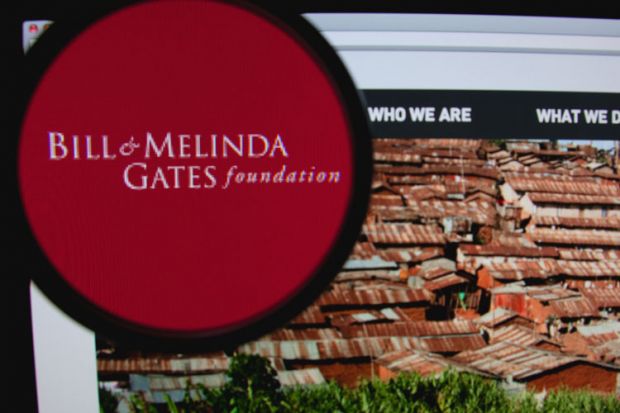Source: Gil C/Shutterstock.com
Open access mandate
Gates Foundation sets the pace
The Bill and Melinda Gates Foundation has announced that all academic papers and datasets arising out of its funding must be made immediately open access from January 2017. The move follows the introduction of open access mandates by a number of global research funders, including Research Councils UK and the Wellcome Trust. However, it goes further than all previous ones in insisting that embargoed “green” open access will not be acceptable beyond January 2017. For a period beginning in January 2015, papers will have to be made open access within 12 months of publication but published under the Creative Commons CC-BY licence, which permits all reuse subject to attribution. The licence requirement would rule out publication in many prestigious journals, including Science and Nature. The foundation has said that it will pay any “reasonable” fees charged by publishers “to effect publication on these terms”.
Humanities and social sciences research
University groups affirm value
Seven groups of leading research-intensive universities from around the world have signed a statement stressing the importance of research in the humanities and social sciences. The Leiden Statement, signed on 21 November in the Dutch city, commits signatories to supporting and promoting the disciplines, which it says are crucial to solving global challenges such as economic fragility, religious extremism and ageing populations. The signatories are the Russell Group, the League of European Research Universities, the Association of American Universities, the Association of East Asian Research Universities, Australia’s Group of Eight, Japan’s Research University 11 and Canada’s U15. China’s C9 Group is also expected to sign at a later date.
Post-study work visas
Scotland presses for exception
Scottish universities and businesses have joined forces to call for the reintroduction of a two-year post-study work visa north of the border. An open letter to the Smith Commission, which will decide on which additional powers should be devolved to Holyrood, has been signed by Universities Scotland, the University and College Union Scotland, and NUS Scotland, alongside business groups including the Scottish Chambers of Commerce and the Institute of Directors Scotland. The letter says that there are precedents for Scotland having different immigration rules from the rest of the UK, and that the country has more demographic demand for highly skilled workers than other regions. Pete Downes, the convener of Universities Scotland, said: “Our universities are forced to operate in an anti-competitive environment in attracting international talent that could be of great economic and social benefit to Scotland.”
Grammar schools
Little boost to university study
Grammar schooling is “not linked to any significant advantage” in getting a degree generally or graduating from an “elite” institution, research suggests. Researchers at the Institute of Education, University of London and the University of Manchester state that instead “advantaged social origins and private schooling raise the chances of getting a degree, and especially an elite degree, above and beyond cognitive and examination attainment”. They add: “Given the domination of Britain’s ruling class by graduates of private schools and elite universities, these non-meritocratic processes have important repercussions.” Their paper, to be published in the Oxford Review of Education next month, analyses the education histories of more than 7,700 people in England and Wales whose lives are being followed by the 1970 British Cohort Study.
Follow Times Higher Education on Twitter
News that the overall success rate for grant applications has fallen for the first time in five years, with five of the six research councils surveyed reporting a dip in the percentage of bids gaining funding, got people talking on Twitter. @LOleics said it was “not what [you] want to hear when in middle of writing bid”, while @forganross described the statistics as “depressing”. @briscoejames said it was worrying that “both application rates and success rates decrease”, and @sarashinton sarcastically described the article as “cheery news to read over your cornflakes”.

